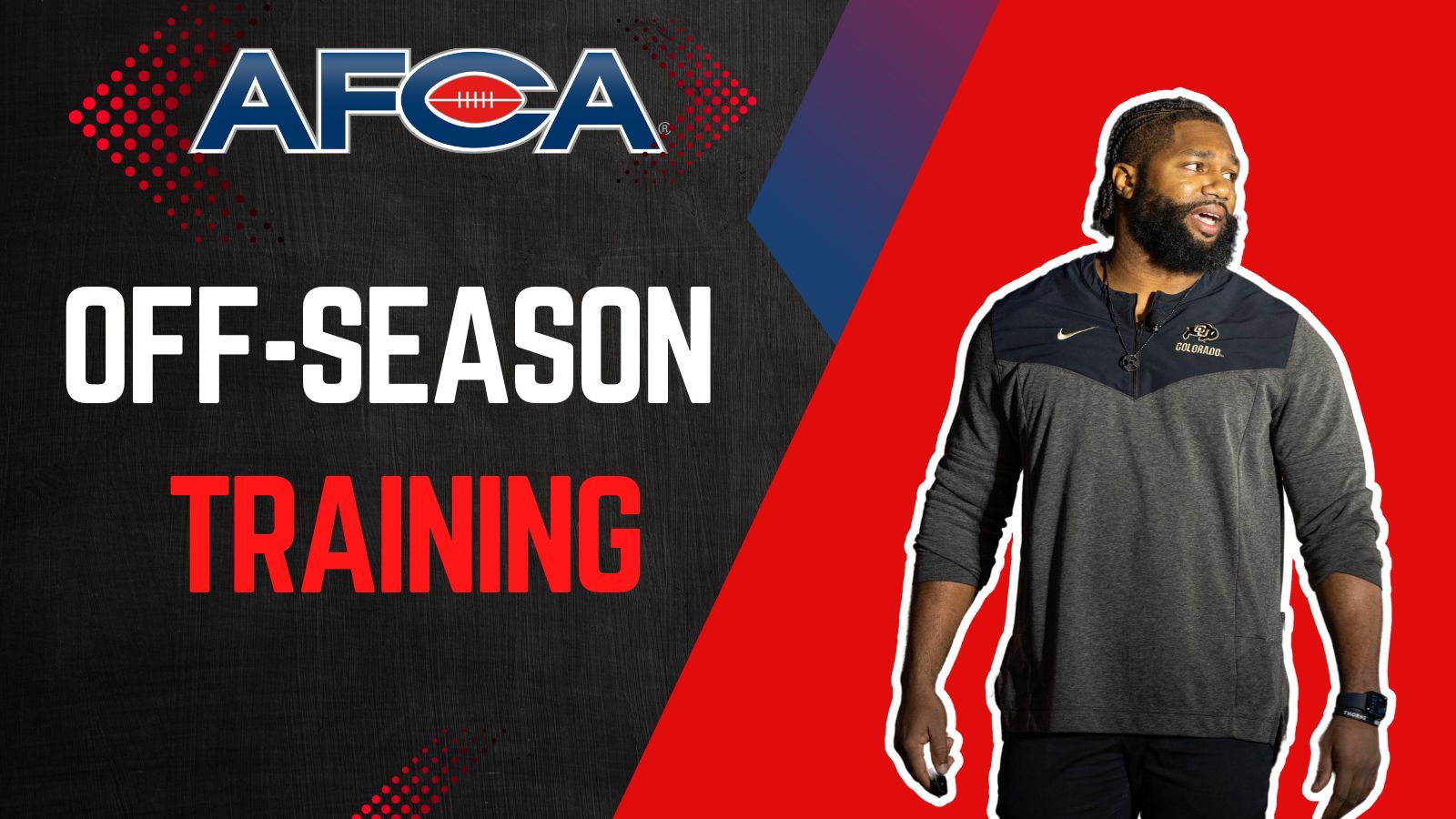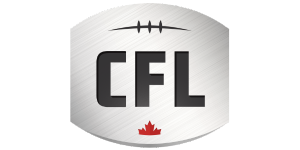
Off-Season Training
June 10, 2024
Maurice Sims is the Director of Football Sports Performance at the University of Colorado. Before joining Colorado’s staff, Sims spent the 2022 season at Jackson State as the Director of Strength and Conditioning. The Tennessee native started his strength and conditioning career as an intern for Tennessee in 2010. From there he has worked at Bethune-Cookman, North Carolina A&T, Indiana, Army, North Carolina, and Georgia.
Sims’ philosophy is helping student-athletes perform at optimal levels mentally and physically while minimizing the risk of injury, but most importantly, developing his athletes into men. He instills these core values into his athletes – be smart; be tough; be fast; be disciplined and do all of those with character. Sims quotes team success as having three stages. The beginning = bringing people, progress = staying together, and team success = working together.
Each athlete has a 4-year development plan based on their needs. From there, Sims splits his athletes into three different training groups. He does this because there are different breeds of athletes and they do not all train the same. He has trench athletes, who are physically dominant, skill athletes, who are fast, and combo athletes, who are a hybrid of both.
When it comes to training seasons, the Buffaloes break it down to winter (9 weeks), spring (5 weeks), summer (8 weeks), and in season (18+ weeks). Throughout all these seasons they are always evaluating the players so they can give their coaches feedback. They use goal sheets for their players to hold them accountable and because anything they can get the guys competitive, is a good thing.

A typical template for acceleration training for the Buffaloes focuses on three things. You begin with a good warm-up, then start with technique work. They move to plyo work and end with acceleration work. On lower body days, they start with fieldwork, then come inside and do lower body lifts. On upper body days, they start with upper body lifts, then conditioning on the back end.
Rock Solid Time is Colorado’s version of typical mat drills. They have 6 stations – N Drill, 5-10-5, Modified L Drill, Prowler Push, Bags, and Wave Drill. They keep going through the stations until every athlete gets a thumbs up/pass for all the stations. Rock Solid instills discipline in your players and shows you who your leaders are on the team.
Sims makes sure not to neglect anything, including foot health, lower back, anti-rotational core, and a growth mindset. Always remind your athletes to be better than yesterday. Show people you care and invest in their lives outside of the game.
For more information about the AFCA, visit www.AFCA.com. For more interesting articles, check out The Insider and subscribe to our weekly email.
If you are interested in more in-depth articles and videos, please become an AFCA member. You can find out more information about membership and specific member benefits on the AFCA Membership Overview page. If you are ready to join, please fill out the AFCA Membership Application.
« « Previous PostNext Post » »
Maurice Sims is the Director of Football Sports Performance at the University of Colorado. Before joining Colorado’s staff, Sims spent the 2022 season at Jackson State as the Director of Strength and Conditioning. The Tennessee native started his strength and conditioning career as an intern for Tennessee in 2010. From there he has worked at Bethune-Cookman, North Carolina A&T, Indiana, Army, North Carolina, and Georgia.
Sims’ philosophy is helping student-athletes perform at optimal levels mentally and physically while minimizing the risk of injury, but most importantly, developing his athletes into men. He instills these core values into his athletes – be smart; be tough; be fast; be disciplined and do all of those with character. Sims quotes team success as having three stages. The beginning = bringing people, progress = staying together, and team success = working together.
Each athlete has a 4-year development plan based on their needs. From there, Sims splits his athletes into three different training groups. He does this because there are different breeds of athletes and they do not all train the same. He has trench athletes, who are physically dominant, skill athletes, who are fast, and combo athletes, who are a hybrid of both.
When it comes to training seasons, the Buffaloes break it down to winter (9 weeks), spring (5 weeks), summer (8 weeks), and in season (18+ weeks). Throughout all these seasons they are always evaluating the players so they can give their coaches feedback. They use goal sheets for their players to hold them accountable and because anything they can get the guys competitive, is a good thing.

A typical template for acceleration training for the Buffaloes focuses on three things. You begin with a good warm-up, then start with technique work. They move to plyo work and end with acceleration work. On lower body days, they start with fieldwork, then come inside and do lower body lifts. On upper body days, they start with upper body lifts, then conditioning on the back end.
Rock Solid Time is Colorado’s version of typical mat drills. They have 6 stations – N Drill, 5-10-5, Modified L Drill, Prowler Push, Bags, and Wave Drill. They keep going through the stations until every athlete gets a thumbs up/pass for all the stations. Rock Solid instills discipline in your players and shows you who your leaders are on the team.
Sims makes sure not to neglect anything, including foot health, lower back, anti-rotational core, and a growth mindset. Always remind your athletes to be better than yesterday. Show people you care and invest in their lives outside of the game.
For more information about the AFCA, visit www.AFCA.com. For more interesting articles, check out The Insider and subscribe to our weekly email.
If you are interested in more in-depth articles and videos, please become an AFCA member. You can find out more information about membership and specific member benefits on the AFCA Membership Overview page. If you are ready to join, please fill out the AFCA Membership Application.

















